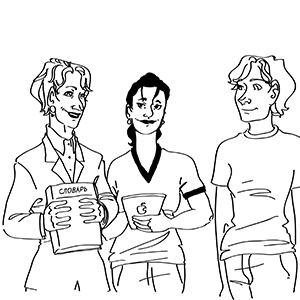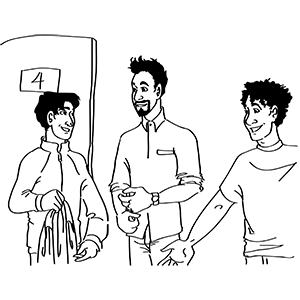Вы всё по́няли? 1.9 Чья э́то ку́ртка?
Упражне́ние 1
In this section you will begin working with the word чей and the possessive forms мой, твой / ваш , наш and их. So that you can focus on the possessive forms, make sure that you know the words for the everyday objects about which we will be asking.
Чей э́то чемода́н?
Упражне́ние 2
Later in this section you will work in more detail on the grammar associated with the word "whose" and the possessive forms "my/mine," "your(s)," "our(s)," etc. Your task now is to make sure you understand the basic meaning of each possessive. Each of the the following phrases has occurred in our story. Review the text in this section to determine which English translation corresponds to the given possessive form.
Твой и́ли ваш?
You have hopefully noticed that there are two words for “your” (твой and ваш) that correspond to the two words for “you” (ты and вы). You will soon learn more about the different endings these possessives can take, but in the meantime you will work on choosing the correct word for the context. Remember that твой is used in contexts in which you are speaking informally to a single person, and that ваш is used when you are speaking to a single person formally or to more than one person.
Упражне́ние 3
In the exercise below the person pictured is speaking. Based on the context, choose whether they would use ваш or твой.
Упражне́ние 4
For each sentence you have a choice of two possessives. Choose the one that logically completes the sentence based on the image provided.


